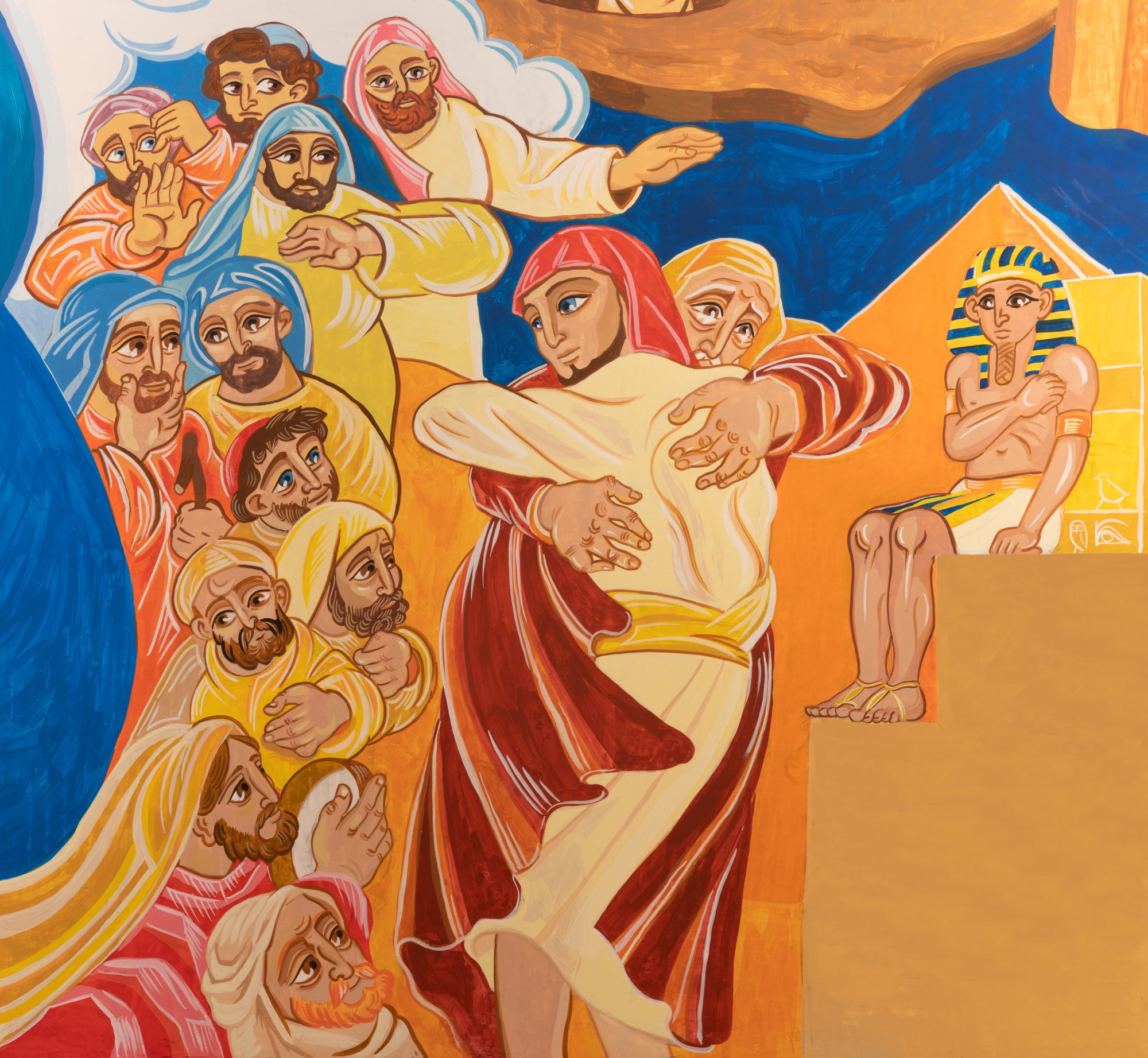
I surround myself with creative people, but I usually do not consider myself to be creative. So I was shocked that I volunteered to work one-on-one with a storyteller to tell my Teachers Fellowship cohort a story at our Fellowship retreat. I am a preacher and a teacher, but I have never done something like that before. At that moment, I think that God was nudging me to practice what I preach and teach my students: to get out of their comfort zones as much and as often as they can.
I had the privilege and the honor of working with storytelling coach Jennifer Rudick Zunikoff for several sessions prior to our Fellowship retreat. It was a blast to get to talk shop with someone who engages with the Bible in such creative ways. My time with Jennifer reignited a passion and an excitement for a Biblical narrative that I have been working with for years. She helped me to think about the narrative of Joseph (Genesis 37-50) in ways that I had never considered. I have worked on this narrative from an academic perspective for so long that I was actually afraid to teach it to my students—I feared that I would talk over their heads, go too much into my doctorate research on the topic, or make the lesson inaccessible to them. I was so worried that my passion for the work would negatively impact their experience with it that I actually denied them the opportunity to engage with such an important narrative.
My academic work on the narrative of Joseph focuses on reading the passage as a migration text. Specifically, I focus on the concept of forced migration in the Bible as it impacts our modern understanding of forced migration. Jennifer helped me to realize that when I put myself in the story that I didn’t have to worry about being too academic. Her exercises helped me to really feel the pain that Joseph felt. I imagined him looking in the mirror at his own almost unrecognizable image. I also pictured him giving his newborn son a Hebrew name that connected him with a land he would never know. I was able to tap into emotions that I knew Joseph probably felt; I was able to feel them with him and convey them to an audience.
Working on this story with a Jewish Biblical storyteller was powerful. I have often experienced what Episcopal priest and religion professor Barbara Brown Taylor calls “holy envy” when I hear or see Jewish scholars engage with the Hebrew Bible narratives. Storytelling seems to be woven into Judaism in a way that I don’t always “get” in Christianity. Maybe this is because of the Oral Torah and Midrashic traditions that shaped early expressions of Judaism.
I have always wanted to understand how to make a Bible story come alive like the Rabbis can. But then I finally got it. I had to get out of my head and into my heart. Telling this story was so powerful and Spirit-led because I treated it like prayer. I let God lead and I just spoke the words that God wanted me to convey.
As of late, I have been intentionally taking direction from the Spirit. I let God guide my thoughts, words, and deeds in directions that I would never go alone. This has been a helpful (and sometimes terrifying) practice in my life, in my classroom, and from the lectern. I am a faith teacher and a chaplain at a religious school, so one might expect Spirit to be involved in my vocation in this way. But this is a new role for me, and it is a fairly new practice for me to surrender to God’s guidance at all times.
I am so appreciative to my cohort for reminding me how much fun it can be to teach religion. Hearing them talk about why they teach and their plans for their classes makes me want to continue to challenge myself to create more engaging lessons for my students.
If I really believe that religion is a powerful force for good, then I have to keep challenging myself to do good in new ways that are sometimes scary. The Teachers Fellowship cohort presented an opportunity to learn something new and provided the support for me to give it a test drive before I tried it with my students. My time with the Teachers Fellowship has helped me to realize how much pandemic-era teaching has sucked the joy out of teaching. We have all been so busy surviving and pivoting that there has not been much time to engage in the teaching activities that we love. Engaging with passionate individuals and challenging myself to embody joy in my practice has rectified something that I didn’t know I had lost these last two years. It is crazy how one nudge from the Spirit made me level up my entire approach.
 Allison Harmon is the middle school chaplain at St. James Academy. She was a member of the 2021-2022 ICJS Teachers Fellowship.
Allison Harmon is the middle school chaplain at St. James Academy. She was a member of the 2021-2022 ICJS Teachers Fellowship.
Opinions expressed in blog posts by the ICJS Teacher Fellows are solely the author’s. ICJS welcomes a diversity of opinions and perspectives.